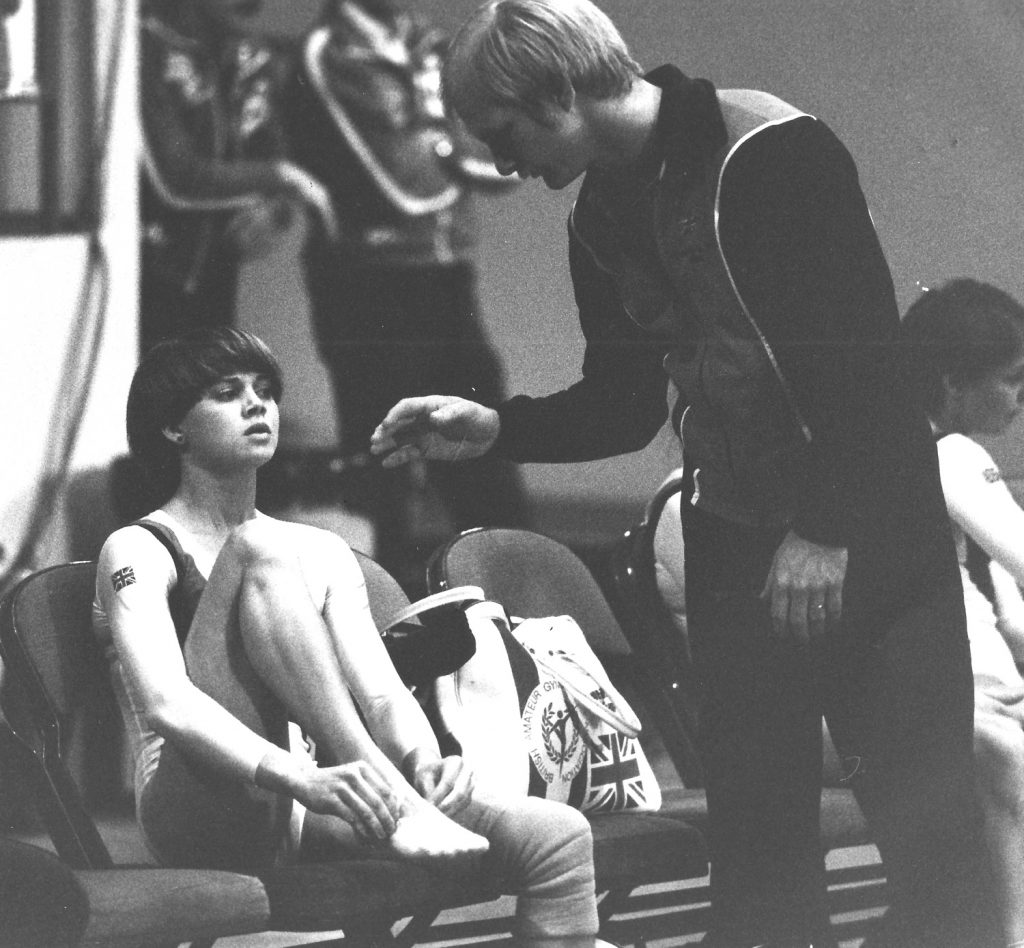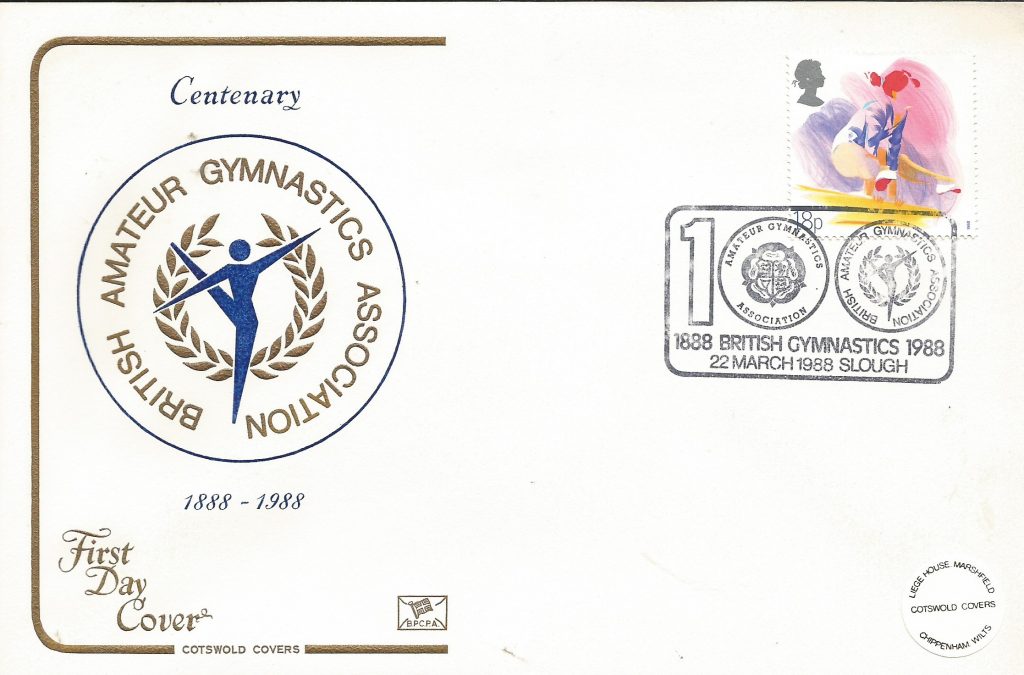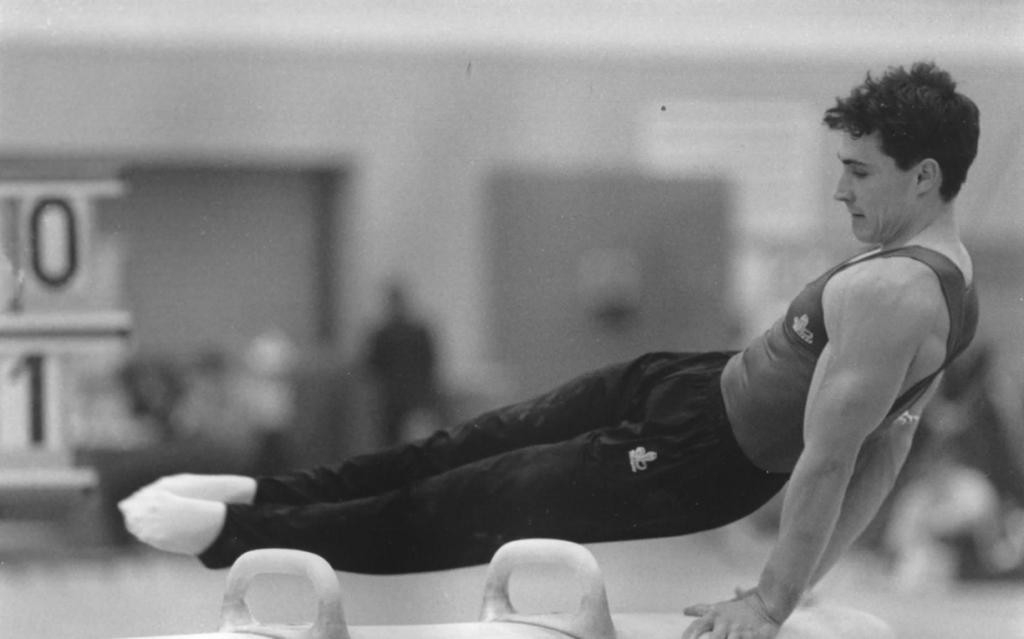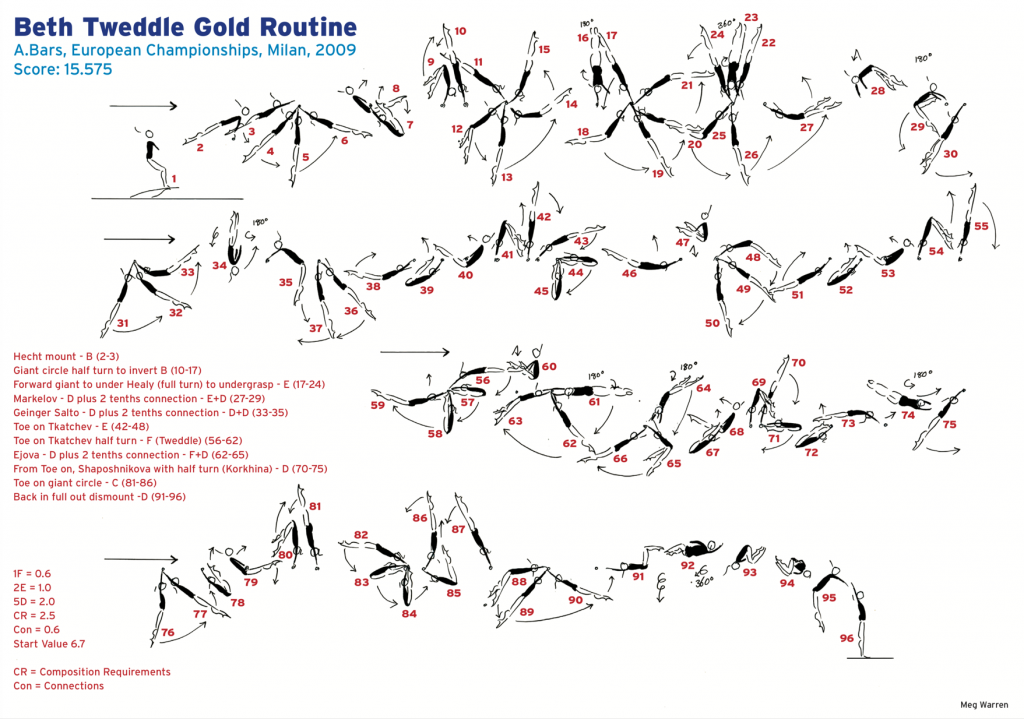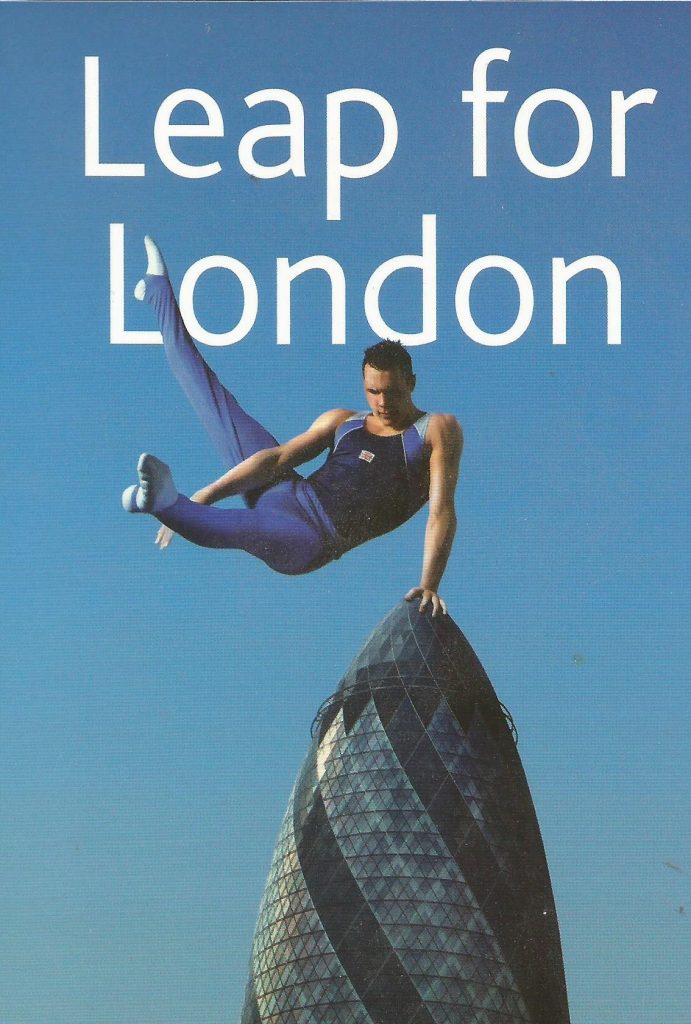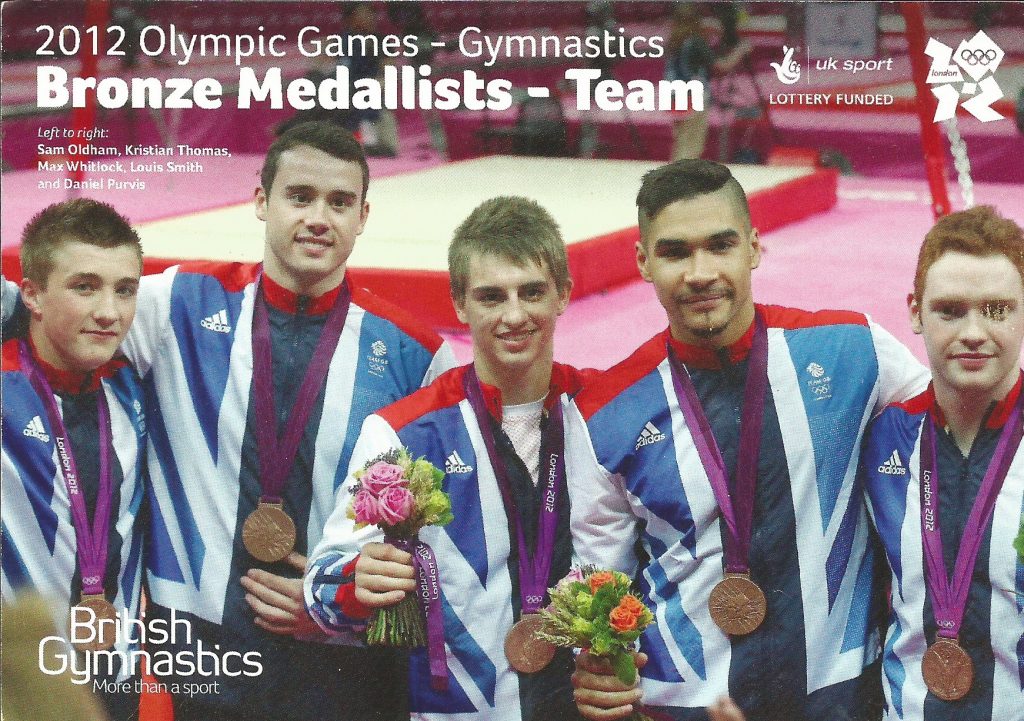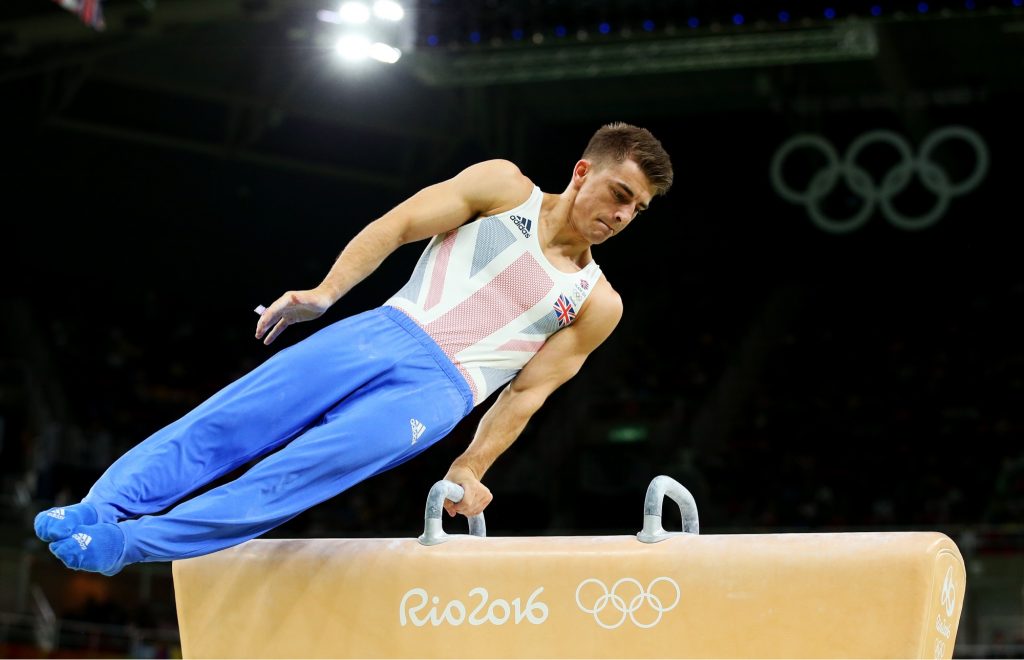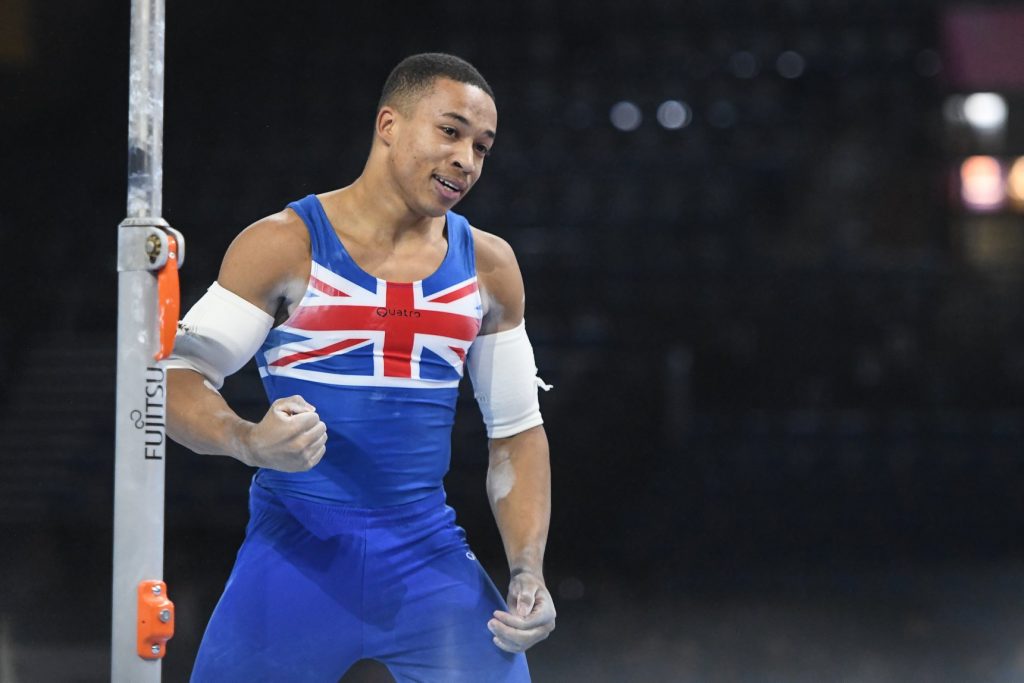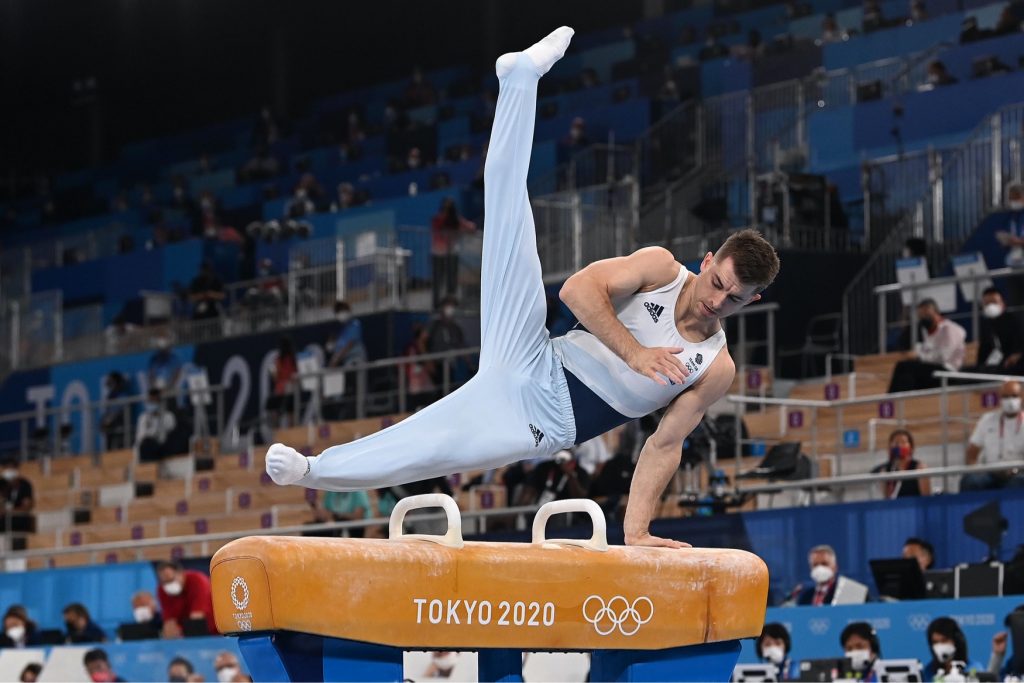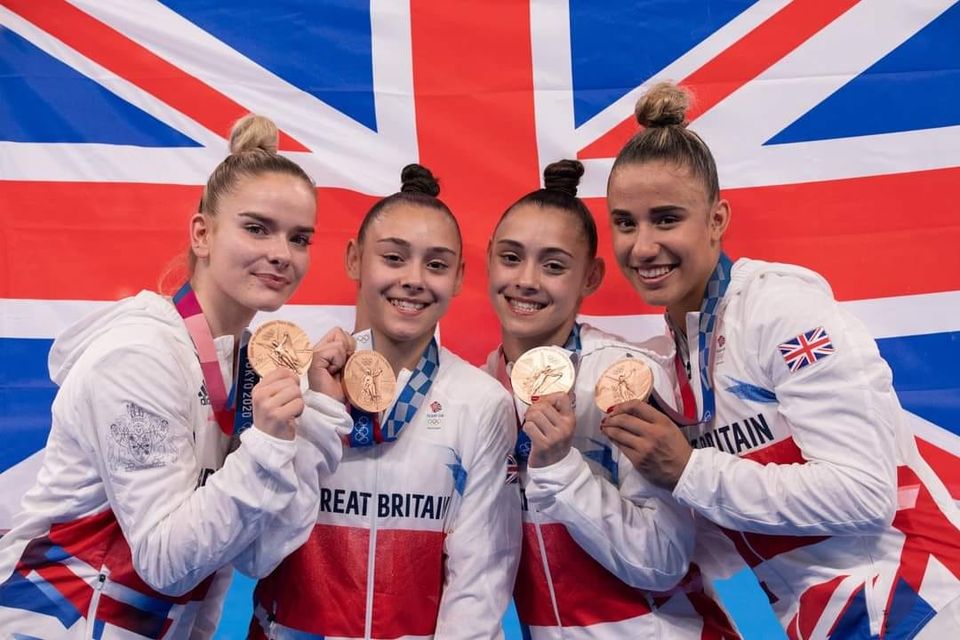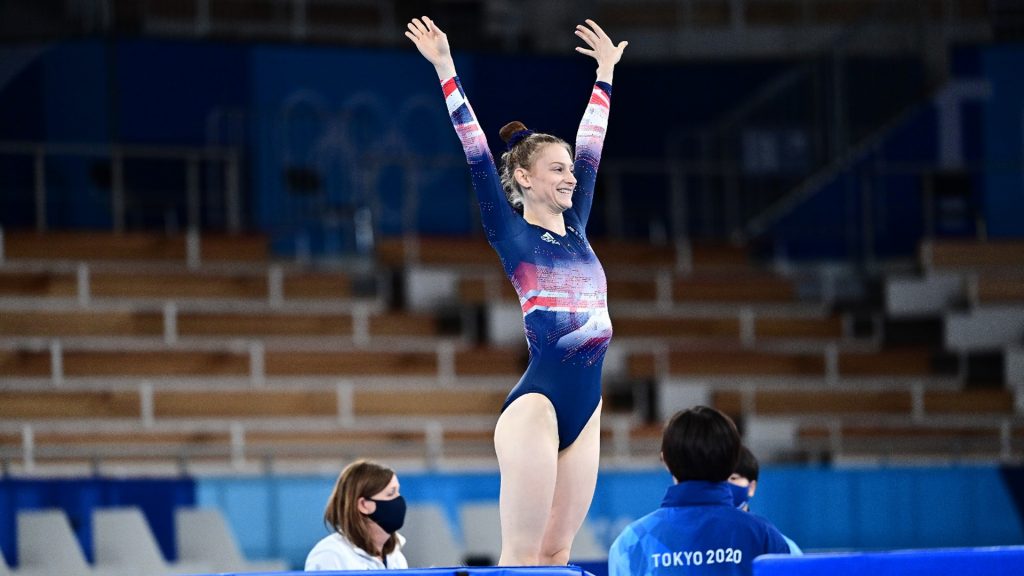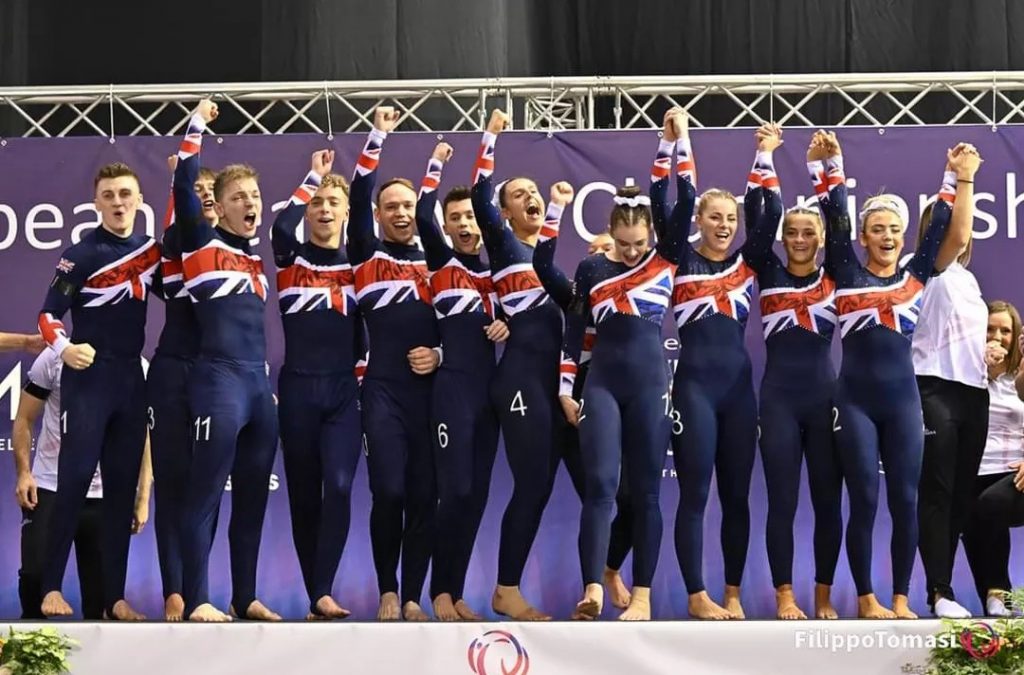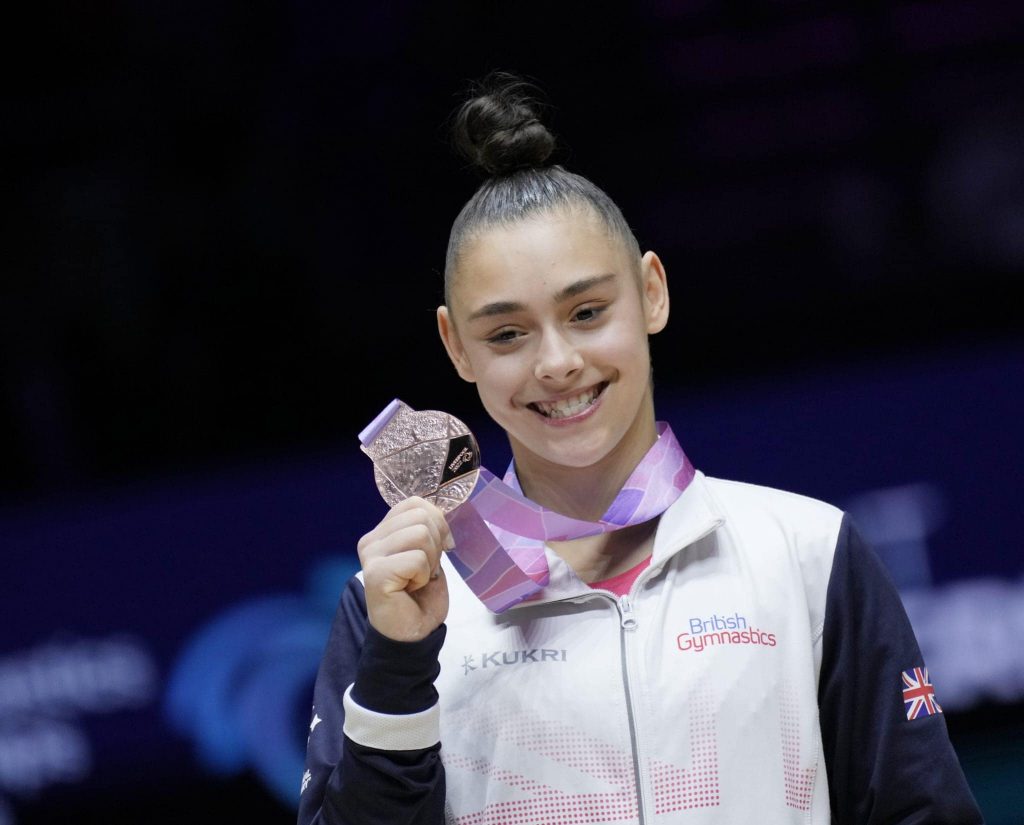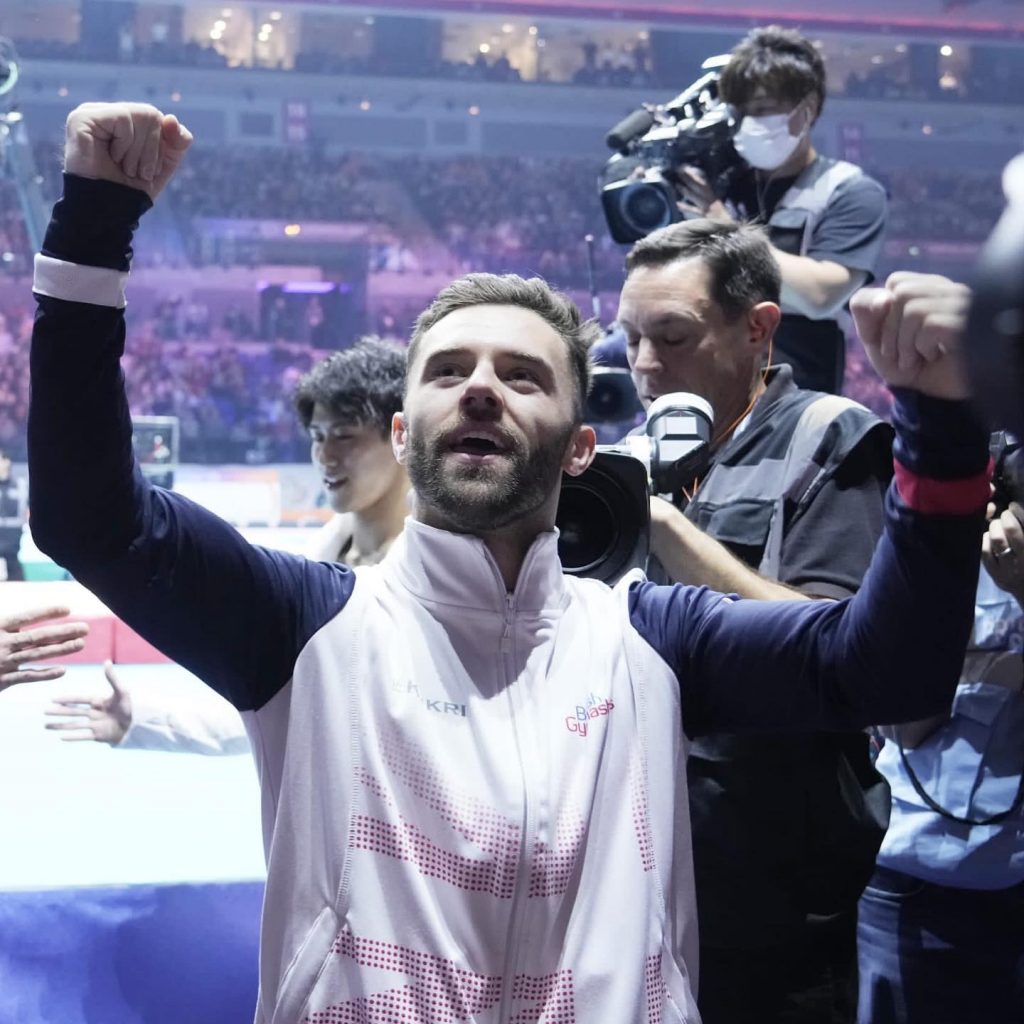HISTORY OF BRITISH GYMNASTICS
There are glimmers of hope with reorganisation and professional staffing. Equipment and facilities are improving in quality and quantity, and gymnastics coaches take up the challenge. With funding from outside bodies, British Gymnastics finally competes on equal terms, displaying our wealth of talent.
1981 to Present
1981
The International Gymnastics Federation (FIG) celebrates its centenary.
The Sports Acrobatics Award Scheme reaches 50,000 badges by December.
1982
Men’s Artistic Award Scheme launched in January.
1983
The BAGA technical administration is established at Lilleshall. The other part of the BAGA is still at Slough.
1984
Los Angeles Olympics – 2 teams of 6 take part. 2 Rhythmic gymnasts take part.
GB Men & Women gymnasts participate in the Alternative Olympics Czechoslovakia. (The Eastern Block Olympics as they boycotted Los Angeles).
British Gymnastics aims to give all disabled people regardless of impairment or ability the chance to participate in every form of the sport. Disability Gymnastics recognised as an official discipline.
John Atkinson appointed Technical Director.
Colin Still becomes full time National Coach for women, a post he had held in an honorary position since 1981.
Lloyd Readhead appointed as National Coach for men.
1985
Eddie Van Hoof becomes a national coach for men.
Wolfgang Bohner appointed a national coach for women.
John White appointed National coach for Recreational Gymnastics.
Helen Roberts appointed as National Rhythmic Gymnastics Coach.
1986
An English committee formed to support and select gymnasts for teams for Commonwealth Games. The event in 1986 in Edinburgh did not include gymnastics so a Commonwealth Gymnastics Championships took place at Falkirk with teams from Scotland, Wales, and England plus other commonwealth countries.
1989
Mathew Todorov from Bulgaria is appointed National Coach for Acrobatic Gymnastics. This proves to be a turning point for this discipline.
1992
Barcelona Olympic Games – a team of 6 men and 2 women represent GB.
Some male gymnasts are centralized with their training at Lilleshall.
Adrian Stan from Romania is appointed National Coach for women’s artistic gymnastics.
Aerobic Gymnastics introduced in Great Britain.
1993
Birmingham hosts first Artistic World Championships in Britain. Neil Thomas wins silver medal for the floor exercise; the first world medal for the UK in artistic gymnastics.
Adrian Stan increases the difficulty of the range and condition exercises for the Women’s NDP which begins to revolutionises the performances within women’s gymnastics.
The first closed English Championships is held in Liverpool for men’s & women’s artistic gymnastics. The Open Championships of England 1896 was always the opportunity for all UK gymnasts to take part, thus taking on the mantle of The British Championships.
1995
There are below 60,000 members within the association.
1996
Atlanta Olympic Games – 2 men and 2 women represent GB.
1997
British Gymnastics is awarded the rights to host one of the prestigious Artistic Gymnastics events – originally called a Grand Prix this is now called a World Cup. This was held in Glasgow who was to play host for numerous Grand Prix. A televised, international competition, featuring the worlds’ best gymnasts, and is still held in Britain each year.
1998
UK Sport begin awarding Lottery funding to British Gymnastics for the development of elite sport programmes.
1999
The British Trampoline Federation joins British Gymnastics uniting the disciplines ahead of the 2000 Olympics. The BTF was formed sometime in the 1960’s.
2000
Sydney Olympic Games – a team of 6 women and 1 man represent GB.
Alan Somerville becomes CEO for British Gymnastics following a variety of General Secretaries. BG finances are in a poor state. Alan Somerville changes this around.
British Gymnastics membership now up to 100,000.
2002
Beth Tweddle wins a bronze medal on bars at the European Championships – the first ever for a women’s artistic gymnast. At the Commonwealth Games in the same year she wins gold for England on the bars.
2003
First World medal for a British Artistic Woman, Beth Tweddle wins bronze on the bars at the World Championships.
John Atkinson retires from British Gymnastics as men’s Performance Director.
2004
Athens Olympic Games – a team of 6 women represent GB.
2005
Britain announced as host for 2012 Olympic Games. British Gymnastics launches new strategy to host a European or World Championships each 4 year Olympic cycle.
2006
Beth Tweddle becomes World Champion on bars for the first time at the World Championships in Aarhus Denmark.
Eddie Van Hoof becomes men’s national coach for the 2nd time.
2007
Dan Keatings wins the silver medal on pommel horse at the European Championships.
2008
Beijing Olympics – a team of 6 women and 2 men represent GB. 100 years after Walter Tyslall wins a silver medal, Louis Smith wins Britain’s next Olympic medal, winning bronze on pommel horse.
The Junior men’s team wins gold at the European Championships beating Russia.
2010
Sam Oldham wins the Gold in the all-around title at the Junior European Championships in Birmingham & Max Whitlock wins silver.
The senior women’s team take the silver medal at the European Championships in Birmingham with Beth Tweddle winning the bars and floor individual championships.
2012
The Senior British men’s team wins gold at the European Championships.
The Olympic Games is held in London with gymnastics at the North Greenwich Arena. GB men win bronze medal in the team event. This is followed by 3 individual medals, silver and bronze for Louis Smith & Max Whitlock on pommels and Beth Tweddle wining bronze on bars. Behind the scenes, British Gymnastics’ events team run the gymnastics competitions in the North Greenwich Arena (AKA the 02 Arena) and Wembley stadium for the Rhythmic Gymnastics.
British Gymnasts are now more popular than any other time in our history. TV audiences are higher than ever and our top gymnasts achieve recognition off the competition floor
Gymnastics as a sport is more popular and membership numbers exceed 300,000 for the first time
2014
Max Whitlock wins silver medal in the all-around competition at the World Championships.
Launch of the British Gymnastics Foundation which aims to help the underprivileged.
2015
British Gymnastics recognised as a leader in Disability Gymnastics and invited to train other nations on delivery of the sport.
GB men take the silver medal in the team competition at the World Championships in Glasgow.
Max Whitlock wins gold on the pommel horse at the World Championships.
2016
Rio Olympic Games – GBR wins 2 gold medals, Max Whitlock wins floor exercise and pommel horse. Louis Smith wins silver on pommels, Amy Tinkler wins bronze on floor and Nile Wilson wins bronze on high bar. Max wins bronze medal in the all-around. Bryrony Page wins the silver medal on trampoline.
Photo BG
British Gymnastics wins Governing Body of the Year award.
2017
Max Whitlock successfully defends his title as world champion on pommel horse at Montreal.
2021
The 2020 Tokyo Olympic Games are delayed and take place in 2021 because of the COVID-19 pandemic.
The women’s artistic team won the bronze for the first time since 1928.
Max Whitlock wins gold again on the Pommels making him a 3-time medal winner at three consecutive Olympics on the Pommel Horse.
Bryony Page wins the bronze medal in the women’s trampoline event at the Tokyo Olympics, making her a 2-time Olympic medallist. She also becomes the 2021 World Champion making her the first world champion in this discipline and our most successful trampoline gymnast.
Photos of Bryony Page and Max Whitlock – BG
2022
GB win Gold at European Teamgym Championships in Luxembourg. The team of Connor Wharram, Jenson Hazel, Katelyn Little, Yasmin Parker, Lewis Lakin, Lewis Clothier, Lucas Jones, Lucy Bonwell, Naomi Bostock, Nicole Hazell, Chris Cranfield and Katie Iles scored 56.350 from floor (18.000), tumble (19.600) and trampette (18.750).
2022
British Gymnasts win 6 medals at World Championships
Great Britain win an unprecedented 6 medals at the World Championships held in Liverpool between the 29th October and the 6th November 2022. Beginning with the GB Women’s Team, who won silver in the team competition, the Men’s team then won bronze, meaning both teams qualified for the Paris 2024 Olympics. GB was the only country to manage full qualification at this stage. This was followed by Jessica Gadirova winning All-Around bronze, Courtney Tullock winning bronze on the Rings, and Giarnni Regini-Moran and Jessica Gadirova both becoming Floor World Champions.
Photos BG
Pre 1900 | 1900 to 1939 | 1940 to 1980 | 1981 to present
The content on this site is curated by Meg Warren, with assistance from Warren Slingsby and a small but dedicated team of contributors. We are building a comprehensive history of gymnastics in Britain and are always interested in learning more and gathering more historical content, so if you can contribute to this page or any others, please get in touch with the links below. Read about the contributors.

Est. 2018 | © GymnasticsHistory.co.uk 2025

